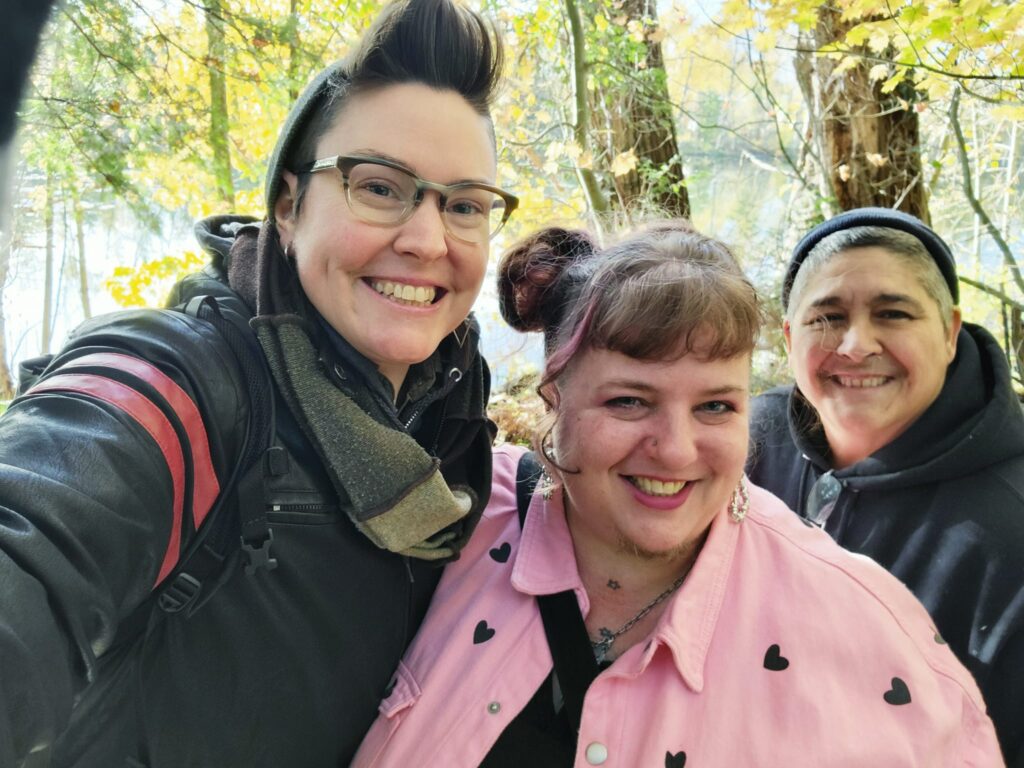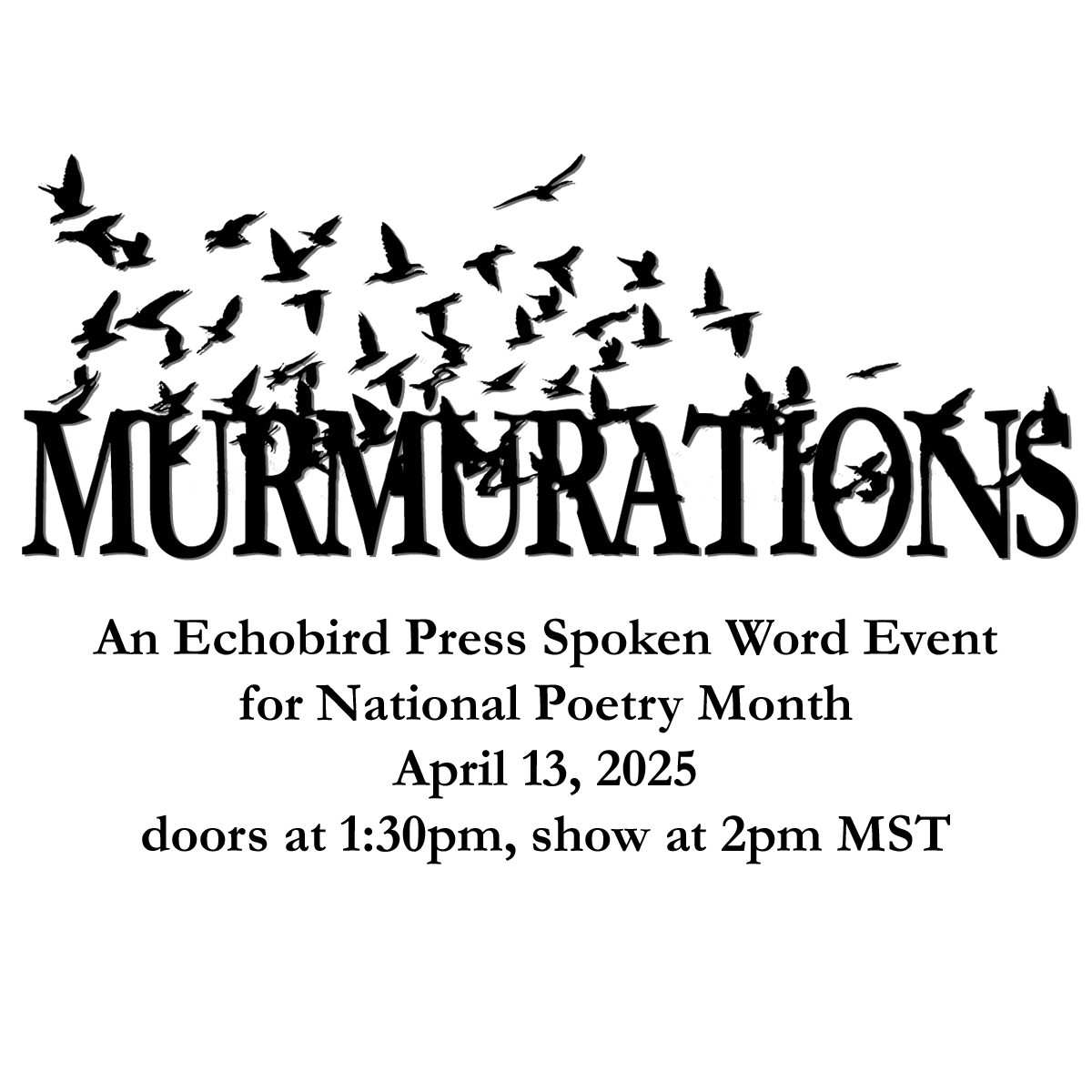Author Spotlight: Sossity Chiricuzio
Courting my muse
With the release of their new chapbook from Echobird Press, bouquet of thorny rose (you can check it out and order here…you won’t be sorry!), we asked Sossity to answer some of our favorite author questions. She’s a fat femme outlaw poet, performer and storyteller living in Portland, Oregon. We are so plussed to have their work published by Echobird; she has a long pedigree of great work, including a long-running poetry event called Dirty Queer.
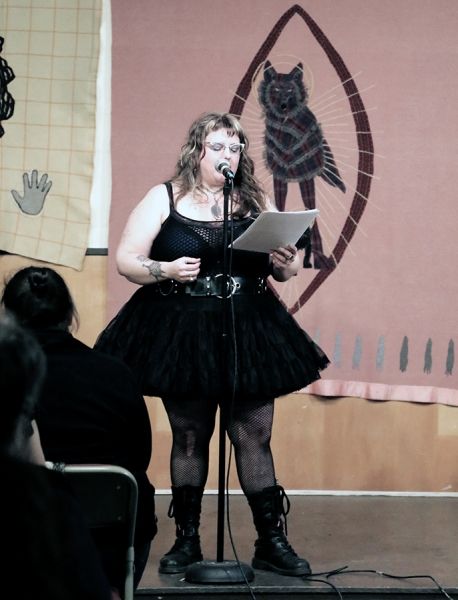
What is the story of your first written work and how did you feel about it? How do you feel about it now?
If we’re talking about the first thing I ever wrote creatively, it was a haiku I wrote when I was around 8 or 9: if I were a bird / I would fly high in the sky / away from humans. Honestly, it still resonates. The world was, and still is, unsafe for a person like me in so many ways, and nature is my happiest place. I remember feeling satisfied to find a way to fit my feelings into that container, and also frustrated by the limitation. That also still resonates. My most honest voice is free verse poetry, which often camps on the line between poetry and prose so fully that neither I nor others are quite sure which it is.
Who are the people who most shaped your writing?
Working class femmes like Dorothy Allison, Minnie Bruce Pratt, Chystos, Joan Nestle, Anna Camilleri, Leah Lakshmi Piepzna-Samarasinha, and so many others are my familiar foundation. A voice that tells the truths we’ve been shamed or shunned for; that spreads shameless joy on queer intimacy; that celebrates survival. Queer authors through the ages like Sappho, Radclyff Hall, James Baldwin, Pat Parker, Leslie Feinberg, Audre Lorde, Cherrie Moraga, Jewell Gomez, Kate Bornstein, and Sarah Waters–a definitely incomplete list. Like many people, I am forever grateful for the insightful genius of Octavia Butler.
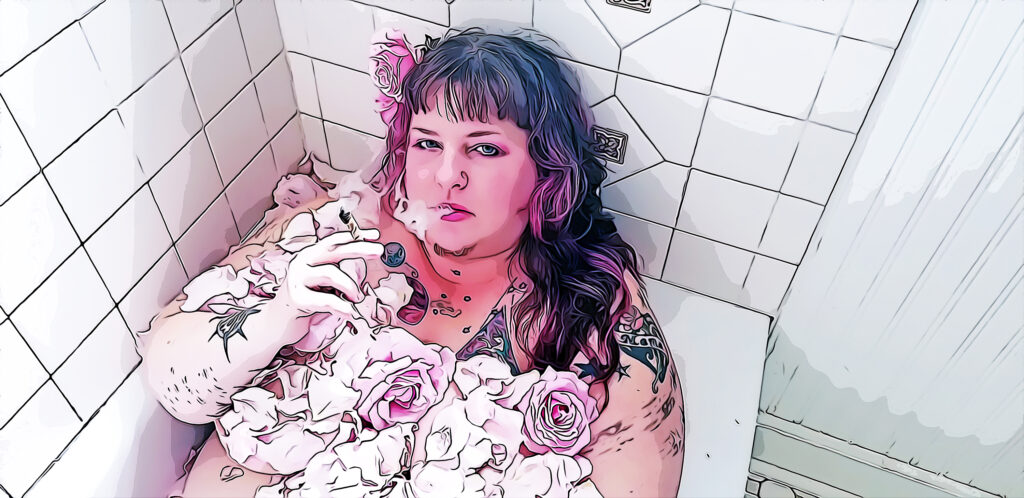
What is your writing practice? Do you have one?
My writing practice has shifted over the years in structure, capacity, and output, but what remains consistent is courting my muse, seeking out learning opportunities, and making regular space for writing or writing related tasks. It might look like writing or editing, or taking a class, or submitting work to publications, or seeking out new journals or authors to follow. Like every writer, sometimes I’m feeling stuck or blocked even when I have time and desire to write. That’s when I either to go search through my phone, computer and notebook for seeds–those gift fragments that come in the middle of something else–and see if they are ready to grow, or to try and find a new structure or style or genre I haven’t done before.
When you look back on your life so far, what do you hope your writer’s CV reflects about you? What about as you look forward?
That I have been persistent, exploratory, and that my work has resonated with a diverse range of editors and audiences. That it is possible to talk about my weird, wild, queer, disabled, survivor life out loud and not be censored (at least, not yet) or silenced. That poems of mine are in the Library of Congress, and the bookshelves of my peers. That I have written everything from essays to articles to advice columns to poetry to memoir to science fiction to erotica to songs. That my work is accessible, deliberately.
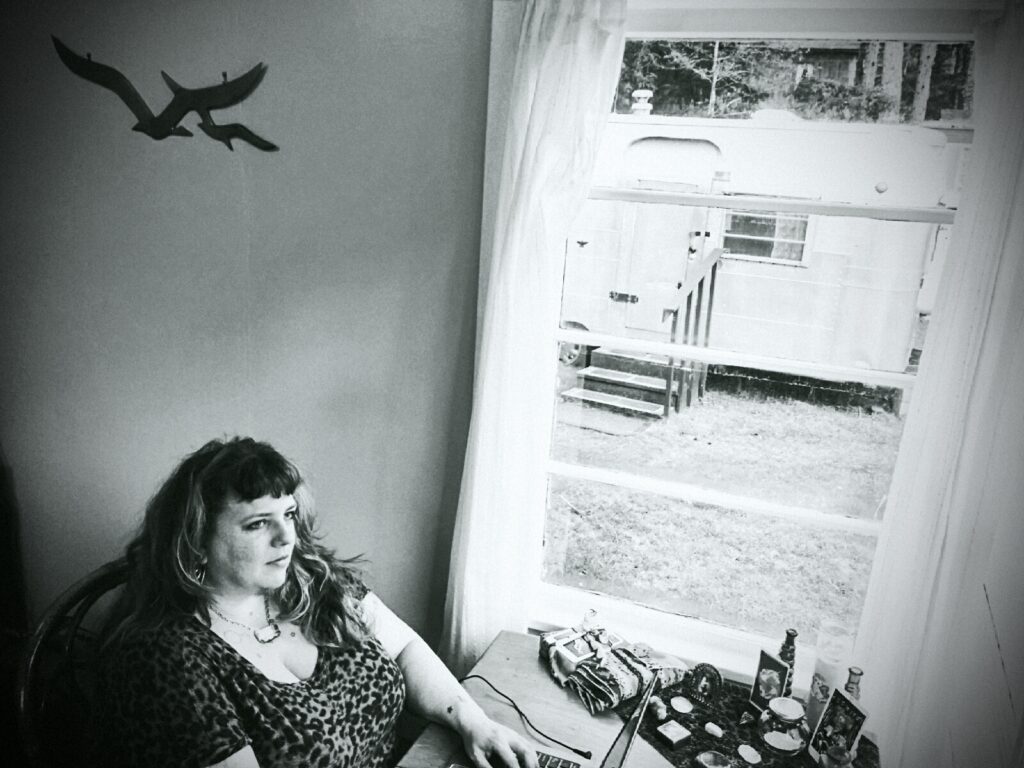
Who have you mentored or taught in writing? What do you hope your teaching says about you as a writer?
I truly love facilitating writing workshops, and working one on one with folks on their practice or a piece of work. What I feel my role is in those moments is to create a container where folks feel safe to be authentic, vulnerable, experimental, and playful. To engage their creativity and expand their options for expression. To invite them out of their comfort zone while not making assumptions about their needs or diluting their voice. I’ve worked with folks of many ages and in many settings, but my priority is access, which for me looks like sliding scale, scholarships for marginalized folks, offering online options, and only having physical gatherings in community spaces that also value access and mutual safety. I’m honored that the words I’ve heard most often used to describe the experience of working with me are: unique, challenging, kind, intimate, inspiring, inclusive, and generative. Above and beyond all of that, what I most want is for them to feel certain that they are, indeed, a writer.
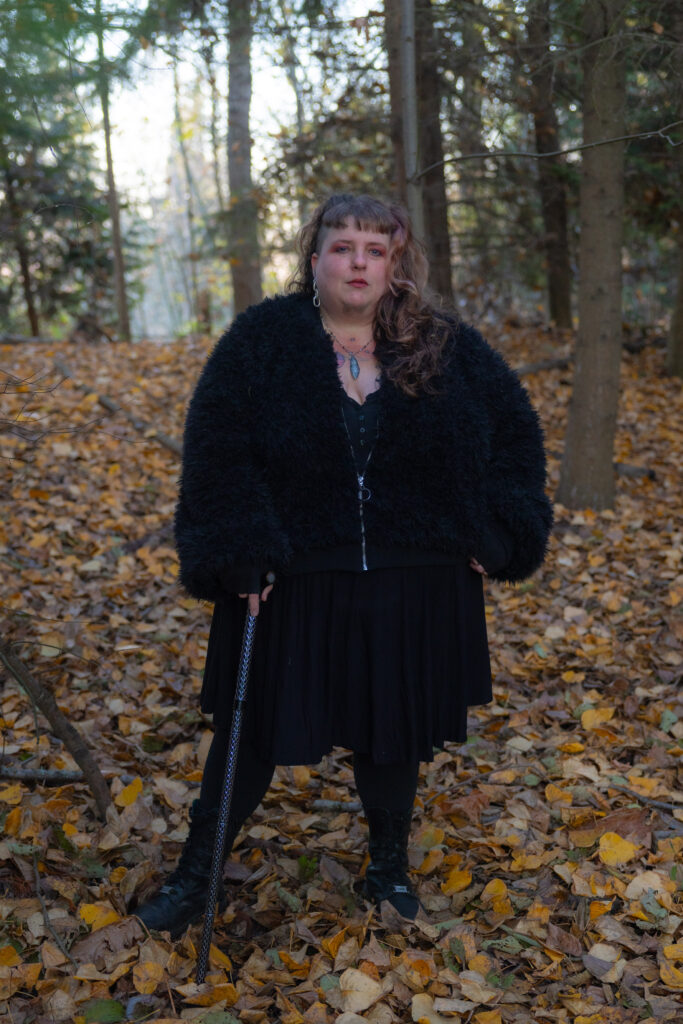
What is in your writing “toolkit?” How do you write – by hand? on your phone? on anything that comes within reach?
I used to write in journals as a practice, and wish I still could, but my hands can’t keep up with my mind for long with anything but a keyboard (thanks arthritis) so I mostly write on my computer. When the muse arrives unexpected, however, it is usually the ‘notes’ feature of my phone, or a spiral notebook I keep on my desk. I do enjoy writing by hand, but that mostly only happens when I’m out in the world, or in a class. I currently use the standard platforms of Word and Google, but am migrating away from them soon for security reasons (check your settings, folks!)
How has writing and poetry saved your life?
I don’t remember a time when I didn’t feel like the odd one in the corner. Not that I’m never part of a group or in the mix of it all, more, that I understand myself to be unlike most of the people around me in public settings. Partly it’s the queer thing, partly the raised by genuine flower children modeling a level of personal observation, autonomy, and values of resistance and truth telling that most kids don’t get to experience thing, partly it’s the too-many-reasons-to-share that I need a wall to my back and a sight line on the exit. What nobody told me for many decades was that what felt like awkward but trying to be present was often perceived as intimidating. I often had far more to share than kindred spirits to share it with. So, poetry. Late at night, on a break from work, on the bus, heartbroken, heart full, violations, epiphanies, depression, hedonism, fear, joy. Once I started to share those solitary stories out loud, I found comrades, and validation, and connection. It’s therapy, art, activism, and community service.
